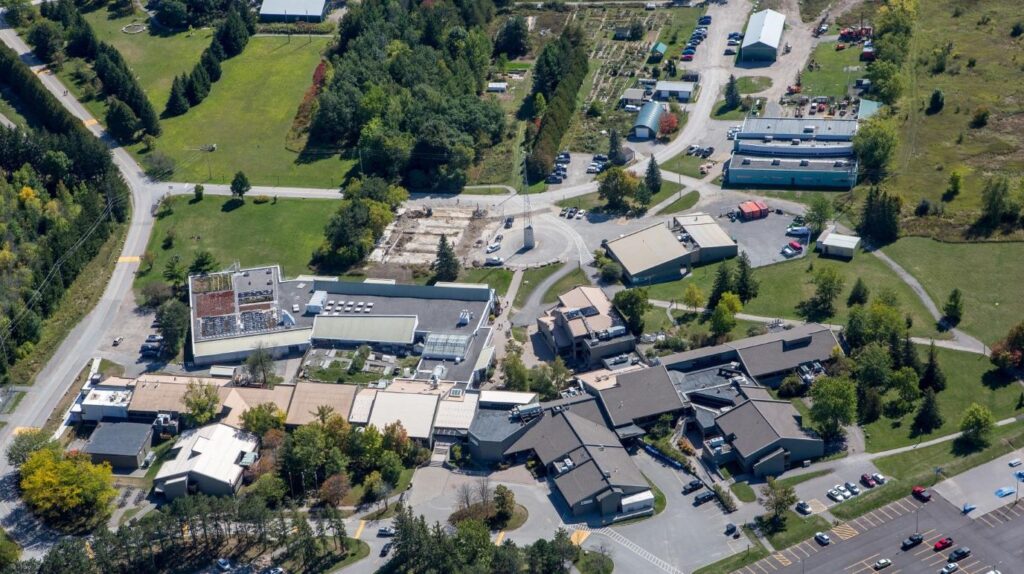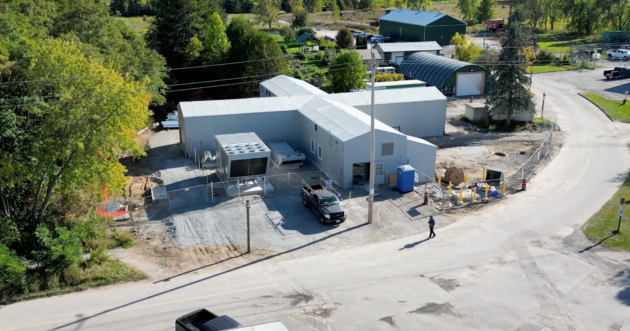
News & Views
Education
Canada’s Fleming College to build new research fish hatchery
December 11, 2023 By Hatchery International staff
 A new fish hatchery at Fleming College’s Frost Campus in Lindsay, Ont. is underway. (Photo: Fleming College)
A new fish hatchery at Fleming College’s Frost Campus in Lindsay, Ont. is underway. (Photo: Fleming College) A new fish hatchery at Fleming College’s Frost Campus in Lindsay, Ont. is underway.
The C$6.5 million (US$4.8 million) facility will be designed to combine aquaculture technology with hands-on learning, and enhance Fleming’s research. The hatchery is set to open in spring 2024.
“This hatchery stands as a testament to Fleming’s commitment to applied learning and fostering groundbreaking discoveries,” said Fleming College president, Maureen Adamson. “This facility will serve as an unparalleled educational hub for aspiring students and community partners, pioneering research in aquaculture production.”
In 2021, Fleming College launched the Centre for Innovative Aquaculture Production (CIAP), an applied research centre working within the commercial and scientific aquaculture community. Researchers, program faculty and technologists worked side-by-side with students under one roof for the first time in Fleming’s historical teaching hatchery.
CIAP has grown and the number of aquaculture program students is expected to double in the next few years, attracting students from around the globe, hence the need for an additional and new learning and research space.

A new fish hatchery at Fleming College’s Frost Campus in Lindsay, Ont. is underway. (Photo: Fleming College)
The facility has three fully independent recirculating aquaculture system-based wings. It enables the academic and research teams to vary air and water temperature and lighting conditions to simulate a broad range of climates and regions worldwide.
The existing hatchery will remain in operation at the Frost Campus. The two hatcheries will house multiple cohorts of fish across levels of maturity and species at the same time.
“This new facility, and what our students will learn here, will be increasingly important as the world looks for new food sources and sustainable practices,” Adamson said. “The ability to study warm and cold-water species, and different cohorts of fish, will open up more employment opportunities for our students.”
Print this page
Advertisement
- Aquaculture producers suspected of €4.5M fraud in Italy
- PEI’s Atlantic Aqua Farms receives $3.4M for triploid mussels breeding program





